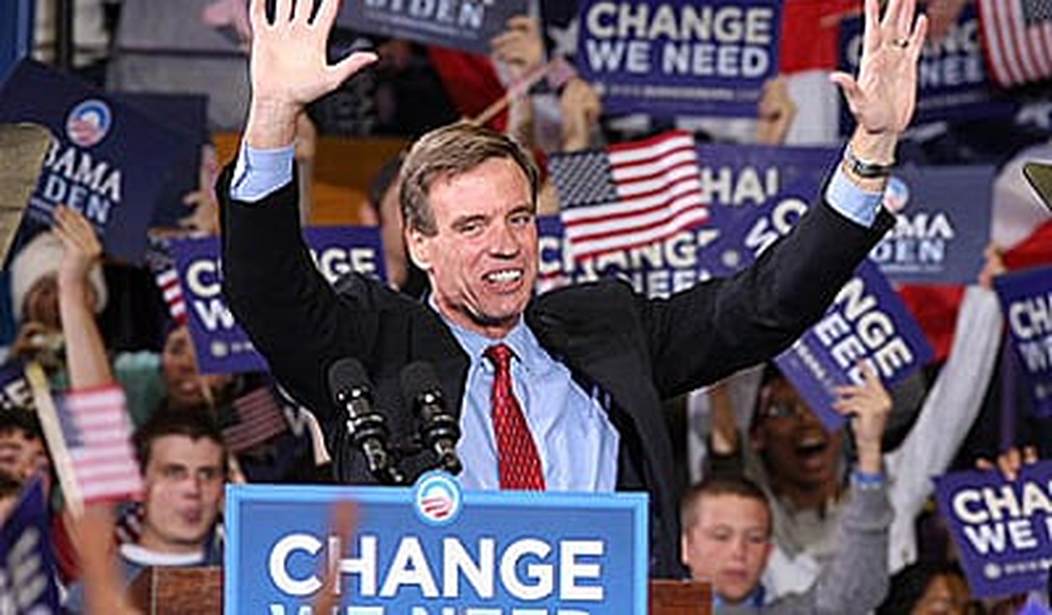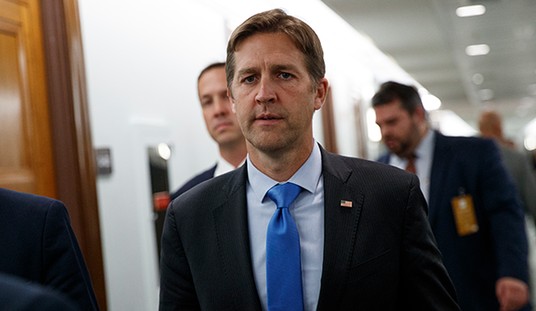Sen. Mark Warner raised $2.7 million in this year’s second quarter, bringing the Virginia Democrat’s already substantial bankroll to $14 million in his bid for a second term.
His opponent, Republican Ed Gillespie, raked in a respectable $1.9 million between April 1 and June 30, a total that puts his underdog candidacy in solid shape to vie for an upset, analysts say.
Warner, 59, will face Gillespie, 52, and Libertarian nominee Robert Sarvis on the November ballot. Sarvis, 37, who ran third behind Democrat Terry McAuliffe and Republican Ken Cuccinelli in last year’s gubernatorial campaign, reported $47,000 in contributions and about $7,000 in cash on hand at the end of June.
While Gillespie’s second-quarter take ran $800,000 behind Warner’s, the former Republican National Committee chairman and adviser to then-President George W. Bush did well enough to keep the pressure on the incumbent.
“It’s not surprising that Warner outraised Gillespie,” Geoffrey Skelley, a political analyst at the University of Virginia, said. “Warner is the incumbent and incumbents typically outraise challengers. Gillespie just has to make sure he stays relatively close to Warner, which he kind of did.”
Still, Gillespie’s overall take since the campaign began — $4.1 million — is less than a third of Warner’s $14 million haul. And the picture doesn’t brighten much for the former Republican National Committee chairman when it comes to cash on hand. Gillespie had about $3.1 million in the bank as of June 30, far behind Warner’s $8.9 million. On top of that, Warner, an early investor in telecommunications giant Nextel, has a personal fortune of an estimated $250 million — he’s the wealthiest member of the Senate, by far — that he could dip into should he need it.
Warner’s substantial cash advantage, along with polls showing him with a 15-18-point lead in the race, puts the incumbent in good shape — for now, at least — to win a second term.
“The money gap and Warner’s decent polling numbers still explain why we continue to view this race as ‘Likely Democratic,’” Skelley said, referring to the contest’s rating by Larry J. Sabato’s Crystal Ball, an election analysis and forecast website at U.Va.’s Center for Politics. Skelley is associate editor of the site.
The Gillespie campaign isn’t conceding an inch, though, saying the race will start to tighten as its candidate, and his message, become better known throughout the commonwealth.
In a release detailing its second-quarter fundraising operation, the campaign touted the number of new donors — 3,305 in the three-month period — who contributed to Gillespie, and noted that 47 of the Republican’s backers previously had given to Warner.
“The $4.1 million raised by the campaign to date puts [it] among the top non-incumbent Republican campaigns [in the nation this year] and positions it well to get Ed’s positive message out to voters,” Chris Leavitt, Gillespie’s campaign manager, said in a statement.
The Warner camp highlighted its own numbers, saying its fundraising effort is attracting contributors from all walks of life.
Of the more than 11,400 donors to the campaign, more than 60 percent gave under $150, campaign manager Trey Nix said in a release.
“Grassroots support from folks across the commonwealth has allowed us to make early investments that will pay dividends in the fall,” Nix said.
Whether or not those dividends pay off for Warner or send Gillespie to the Senate remains to be seen. As Skelley points out, it’s a long way to November.
“A lot can happen in three and a half months,” he said. “The race is far from over.”
Indeed, 14 weeks is an eternity in the world of politics. The catalog of American elections is full of races that took unexpected turns in less time than that.
The first big test for both candidates comes on Saturday, when Warner and Gillespie meet at The Greenbrier Resort in West Virginia — yes, West Virginia — for the campaign’s first debate. PBS NewsHour co-anchor Judy Woodruff will moderate the affair, which the Virginia Bar Association is sponsoring. Sarvis was not invited to the debate.
As he’s done since winning the Republican nomination last month in Roanoke, Gillespie is expected to hammer Warner on his voting record in the Senate — specifically the fact that he’s voted with President Barack Obama 97 percent of the time. The 97-percent figure has become a mantra for the Gillespie campaign, which inserts the statistic in nearly every press release, statement and sound bite it can — including the release on its second-quarter fundraising results.
“The Gillespie campaign continues to build momentum as more and more voters compare Mark Warner’s record of voting 97 percent of the time with President Obama and Ed Gillespie’s agenda for economic growth,” Leavitt said in the release.
The campaign does not mention, however, that the 97-percent tally includes only those votes on which Obama took a position, which turns out to be less than a third of Warner’s overall votes. What’s more, Warner actually voted against Obama’s wishes more than most Democratic senators, with just 10 opposing the president more, voting records for the last five years show.
Still, with Obama’s approval ratings in the cellar, the GOP wants to tie Democrats to the president any way it can. It’s a strategy that’s likely to help Republicans win in at least a few states this year as Republicans seek to take back the Senate. The GOP needs to flip six seats to gain control of the upper chamber. Currently, most political forecast models show the GOP picking up at least four seats.
The Obama connection aside, though, Gillespie says that Warner has shown time and again he’s not the moderate voice in Washington he promised to be when he was elected to the Senate in 2008. From Obamacare to a proposed carbon tax, Gillespie says, Warner has toed his party’s line on several key issues.
“His voting record is very much at odds with what he wants us to believe,” Gillespie said in a recent interview.
But Democrats point to other votes and issues, including the Second Amendment, spending cuts and emissions regulations, where Warner has bucked his party.
Warner’s well-crafted image as an independent voice in Washington’s partisan morass ties in with his campaign’s own mantra — “a bipartisan approach.”
To wit, a comment from Nix in the fundraising release: “We are communicating Senator Warner’s bipartisan approach to reducing the debt and creating good-paying jobs, both on air and door-to-door.”
It’s an approach the senator is sure to mention more than once during Saturday’s tête-à-tête with Gillespie.
Cash Pours In For Giant-Killer Brat
In another Virginia contest — a race that got its start with one of the most stunning upsets in recent history — Republican Dave Brat raised nearly $400,000 in the second quarter in his campaign for the 7th Congressional District seat. Most of that cash poured in following Brat’s unlikely victory over House Majority Leader Eric Cantor in the June 10 Republican primary. Brat’s Democratic opponent, Jack Trammell, raised about $154,000 in the three-plus weeks between his June 6 nomination and the end of the second quarter.
While Brat is still expected to win the seat, the race is not the walk Republicans figured it to be when they, and everyone else, thought Cantor would be the GOP nominee. With the media attention generated by the upset, and Democrats’ sensing they now have at least a shot at the seat, both candidates are raising a lot more cash than normally would be expected for two little-known political beginners.
Brat and Trammell, both of whom are professors at Randolph-Macon College, will join Libertarian James Carr on the ballot November.
(For complete 2014 midterm coverage, get your campaign fix on The Grid.)









Join the conversation as a VIP Member